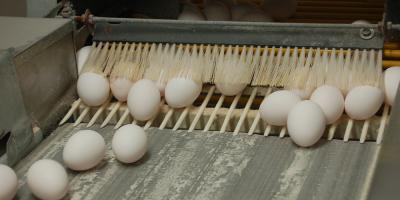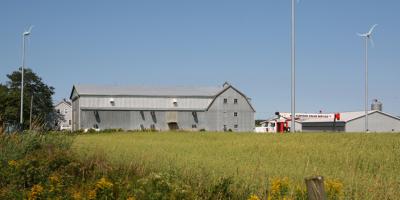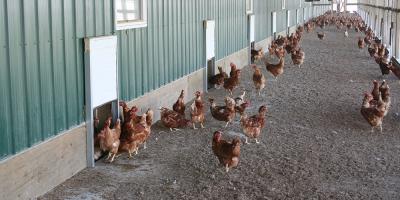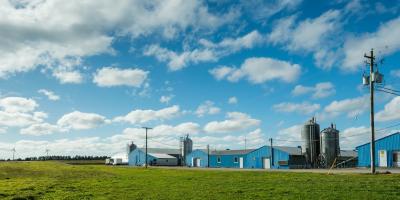On the Farm
What's the difference between free run and free range eggs?
Free run eggs come from hens that roam the entire barn floor. Some of these barns may be equipped with multi-tiered aviaries.
Free range eggs come from hens that roam the barn floor and when weather permits, go outside to pasture. Outdoor access is only seasonally available in Canada.
There are no differences between the nutrient content of these eggs and classic shell eggs.
Nutrition
What is the nutritional value of an egg?
Each large egg contains 6.5 grams of protein and 14 important nutrients like vitamins A, D, E, folate, iron and zinc. Eggs are one of the few foods considered to be a complete protein because they contain all 9 essential amino acids. Learn more.
On the Farm
Do egg farms ever get inspected?
Registered Canadian egg farmers take part in a national Animal Care Program and comprehensive on-farm food safety program, called Start-Clean, Stay-Clean™. These national programs set out important guidelines, based on the latest research and information, and were developed by Canada’s leading experts. Farms are inspected by trained field inspectors and audited against Egg Farmers of Canada’s national programs.
On the Farm
How many eggs does a hen lay a day?
A hen will naturally lay on average, an egg almost once a day.
On the Farm
How do the eggs get to the grocery store?
Once eggs have left the farm, they go through the grading station to be washed, graded and packaged. After this they are on their way to your local store. Eggs are shipped in refrigerated trucks and when they arrive are immediately put in the cold storage or in a refrigerated display case to help preserve freshness. Across Canada most eggs travel from the farm to the store in less than a week!
On the Farm
Are there egg farms in every province?
Canadian eggs are produced by more than 1,000 farm families across every province - even the Northwest Territories. No matter where you shop, the eggs you buy at the store are local.
On the Farm
Are there different types of hen housing?
In Canada, egg farmers use a variety of different systems to house their hens. Each system provides a clean environment, access to fresh food and water, and protection from natural predators. Most hens are housed in temperature controlled barns because the Canadian climate is so variable. This allows farmers to keep a consistent temperature in the barn, and protects the hens from inclement weather like rain, snow, heat and humidity.
In conventional systems, hens are housed in small group settings with plenty of access to food and water. Enriched systems are equipped with perches and a curtained off area where the hens lay their eggs. In free run systems, hens roam the entire barn floor. Some of these barns are also equipped with multi-tiered aviaries. Similar to free run systems, in free range systems hens also roam the barn floor, and when weather permits they go outside.
On the Farm
What standards are in place on Canadian egg farms?
Canadian eggs are produced according to some of the highest possible standards to ensure the eggs you buy at the store are fresh, high quality and of local production. Here are two important programs farmers follow today:
Canadian egg farmers take part in a national Animal Care Program and comprehensive on-farm food safety program, called Start-Clean, Stay-Clean™. These programs set out comprehensive and rigorous standards, based on the latest science and information, and were developed by Canada’s leading experts. Farms are inspected by trained field inspectors—and these programs work because farmers are committed to providing exceptional care for their hens, and keeping eggs safe and fresh for all Canadians.
Community
Why does environmental sustainability matter to Canadian egg farmers?
Environmental sustainability is important to farmers – it ensures a bright future for the next generation. It comes naturally to Canadian egg farmers, some of whom have been producing food on the same lot of land for generations.
Over the past 50 years, Canadian egg production has increased by 50%, but the environmental footprint of Canadian egg farms decreased by 50%.
We aim for continuous improvement, seeking new ways to make egg production even more environmentally sound.
On the Farm
How many dozen eggs do Canadian egg farmers produce each year?
An average of 650 million dozen eggs are produced each year by registered egg farmers.















